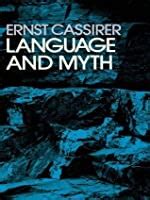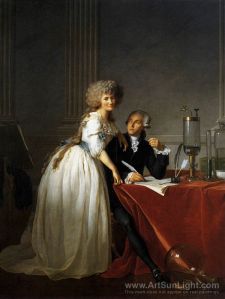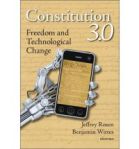One will sometimes hear thinkers of a materialist stripe say something along the lines of, “A table is obviously a table, but words like truth or beauty are mere abstractions, a placeholder/convenience for certain ideas that different cultures have,” and so on. The problem with this lies in the fact that most everything anyone can think of deserves the title, “abstraction.” A table is not one thing but many things put together in a particular arrangement. Is it only a delusion that we call a table a table? Any living creature has many millions of separate parts, yet these parts function as a unity. Even an atom has multiple parts that we “conveniently” put together as a whole. We all “abstract” reality. Reality functions, in this way, as myth. The title of Ernst Cassirer’s difficult (for me at least) but significant work, Language and Myth could perhaps have the title Language IS Myth.
Writing at the end of WW II mean that Cassirer stood near the end of the unquestioned dominance of the scientific worldview. The deconstruction of the coherence of more traditional ways of knowing seemed complete. Cassirer was struck with the fact that the, “theory of knowledge as philosophers had developed it since the Middle Ages concerned itself solely with ‘facts’ and the development of orderly thoughts about facts. . . . Human intelligence begins with conception, the prime mental activity; the process of conception always culminates in symbolic expression. ” The book’s translator Susanne Langer noted in her introduction that, “Myth never breaks out of the magic circle of its figurative ideas. . . . But language, born in that same magic circle, has the power to break its bounds; language takes us from the myth making to phase of logical thought and the conception of facts.”
Hence, “Myth is an inherent necessity of language.”
In the early chapters Cassirer looks at theorist Max Muller. For Muller,
the mythical world is essentially one of illusion–but an illusion that sings its explanation whenever, the original, necessary self-deception of the mind, from which the error arises, is discovered. . . . From this point it is but a single step to the conclusion which the modern skeptical critics of language have drawn: the complete dissolution of any alleged truth content of language . . . Moreover, from this standpoint, not only myth, art, and language, but even theoretical knowledge itself becomes a phantasmagoria; for even knowledge can never reproduce the true nature of things as they are.
If myth be nothing, Cassirer writes, “it is mystifying indeed that this shadow should . . . evolve a positive activity and vitality in its own right, which tends to eclipse the immediate reality of things . . .” All in all Cassirer critiques “that naive realism which regards the reality of objects as something directly and unequivocally given–literally something tangible.” Objects in themselves cannot give meaning directly, for every object is a contract of other objects–hence, reality requires myth-making to achieve any sort of comprehension.
Most interesting to me were his thoughts on the idea that gods in the ancient world served mainly as embodied synthesized concepts. Much of what I learned about ancient religion growing up often amounted to something like, “The ancients didn’t know about electricity, so they thought Zeus threw lightning bolts.” Of course, how such unsophisticated people all over the ancient world managed to achieve such great heights of philosophy, architecture, etc. remains a mystery. Perhaps aliens?” Cassirer has a better approach, though also incomplete.
He begins talking about the “realness” of ancient religious feeling, even through the classical period in Greece, often thought of an an irreligious era. “Reason, Wealth, Chance, Feasting . . . Whatever comes to us suddenly [is] like a sending from heaven. Whatever rejoices or oppresses us, seems to religious consciousness like a divine being.” From these momentary “daimons” a new kind of god emerged, not from immediate experience but from “the ordered and continual activities of mankind,” which happened as our relation to the outer world went from passivity to active engagement. These gods have a narrow “width” but a degree of depth and permanence, as every year one needs to plant, sow, fish, and so forth. “Whenever a special god is conceived, it is invested with a special name, which is derived from the particular activity that has given rise to the deity.” Here we see the connection between language and religion, and how we need both to synthesize and create meaning from experience. Cassirer, using the work of Hermann Usener, thinks too much in an evolutionary way, but represents a big improvement from standard ways of viewing ancient religion.
Again–we have the link between language, myth, religion, all as examples of a synthesizing of material (be that material certain sounds or certain experiences) into meaning. Cassirer seems to lean heavily on the side of “emergence” in the Emanation/Emergence debate, but we can take his point. Cognitive scientist John Vervake has made a similar point about the current conflict in the Ukraine. Everyone is worried that something will happen to expand the war, but that “something” may not come from individual agency. Rather, war means participation in “Ares/Mars.” When we describe war as having “a logic of its own” we mean that a separate “life” exists as a corporate personality that drives decisions. We get enmeshed within this life and follow its bidding.
We can assert that we control this “life” because we created it. But I think it more accurate to say that we, speaking from the “emergence” side of the coin, call it into being rather than create it. History shows that such “ghosts” can be notoriously difficult to control. Think for example, of all of the allied moral denunciations of German use of chemical warfare in W.W. I, or the German bombing of civilian England in W.W. II. But England used chemical weapons in W.W. I shortly after the Germans, and the British and American forces killed far more civilians with bombs than the axis powers in W.W. II. As Vervake noted, these “collective ideations” (which I think was his term) resemble gods of the Bronze Age in Homer’s Iliad. They have abundant power, but grant no wisdom.
We can say the same for the internet itself. Humans created it, but we also called something into being, as we entered a hybrid-partnership of sorts. We feed it with attention, and it in turn learns and feeds things back to us. Surely, the internet has an agency, and seeks to add to its agency all the time.
Ok, the stuff about the internet I stole directly from
and both Vervake and Pageau explain the concept much better than I could.
The new Compact magazine has an article by Edwin Aponte that attempts to split the horns of the free speech wars. Most look at the fact that the left championed free speech in the 60’s, and now seems to favor more restrictions, or that the Right championed the “Moral Majority” and now wants comedians to say whatever they feel like saying, as either ironic or puzzling. But Aponte sees something else, writing
Consider also the activist left’s resistance to the Reagan White House’s unofficial gag order on public discussion of the HIV/AIDS epidemic in the 1980s, and then, barely a decade later, when the Democratic Party held the executive branch, the push for what was at the time called “political correctness”—a speech rubric spearheaded by many of the same left organizers.
In other words, today conservatives are out of power and railing against the canceling of comedians who make jokes about transgender people; tomorrow, the same people may be in power and leading the charge in favor of a ban against transgenderism in schools. This is borne out by the Times editorial. Per the survey, 66 percent of respondents agreed that democracy is built on the free and open exchange of ideas, yet a whole 30 percent also allowed for the curbing of speech if it runs afoul of acceptable etiquette.
Aponte makes the noteworthy claim that the root of this dichotomy lies in the Liberal (the term includes the modern Left and Right) project itself, which pledges unrestrained autonomy to grant one’s desires. Well, one’s desires could easily include both the right to say what you think and to not be bothered by what other people think. When Liberalism chucked Tradition and social mores as guides, they opened these floodgates.
I think, however, that something else is happening. In his farewell address, George Washington warned his countrymen against the formation of political parties, advice which we ignored almost immediately. Perhaps participation in democracies means that we cannot help but form political collectives to try and get what we want. This in turn catches us up in the war of “gods” who seek power but grant no wisdom. Language itself shows that we cannot avoid synthesizing meaning, but how we do so . . . that’s up to us.
Dave










